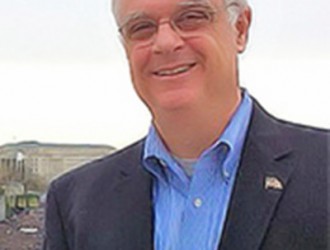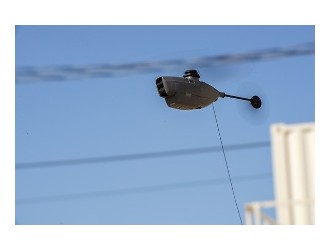Theresa May has retreated from holding a parliamentary vote on airport expansion this autumn after the government was warned that Tory MPs could resign their seats if ministers backed a third runway at Heathrow. Two Conservative sources said Downing Street had been warned by whips that May could face resignations and byelections in seats that could be lost to the Liberal Democrats in south-west London.
The prime minister appeared to prepare the way for a decision in favour of expansion at Heathrow on Tuesday, as she revealed cabinet responsibility would be suspended for longstanding opponents of airport expansion in west London. This would allow Boris Johnson, the foreign secretary, and Justine Greening, the education secretary, to carry on voicing dissent on behalf of their constituents.
However, May also signalled there may not be a major vote in parliament on the issue until winter 2017/18, despite the belief of senior government and opposition figures that a vote would take place this autumn.
One of the MPs who has long been threatening to trigger a contest is Zac Goldsmith, who would be likely to stand as an independent with the support of his local party. He may resign at the point of a decision in favour of Heathrow or put this off until after a formal Commons vote on the issue.
Tania Mathias, the Twickenham MP who won her seat from Vince Cable last year, is reported by the Evening Standard to support Goldsmith’s decision to trigger a byelection, even though it is strictly against party rules to support anyone standing against an official candidate.
May outlined her timetable on Tuesday in a letter to cabinet colleagues, saying cabinet ministers with longstanding opposition to the chosen option could dissent publicly as long as they do not campaign against the government or speak against it in parliament.
However, her official spokeswoman could not say whether Conservative MPs would eventually be given a free vote when the final decision is put before parliament. Asked how many ministers have threatened to resign over the decision on aviation strategy, she said: “I’m not keeping a tally.”
Downing Street sources said May had not categorically ruled out holding a preliminary vote before winter of next year, but pointed out the only legal requirement was for a vote in the final stages, when a national policy statement needed for planning purposes is put to parliament for approval.
One Tory backbencher said the parliamentary vote had been put off because of increasing nervousness about resignations.
The decision suggests she is not strong enough to whip her cabinet in favour of a pro-Heathrow decision, although her official spokeswoman rejected the idea that partially suspending collective responsibility on this issue was a sign of weakness.
Richard Burden, the shadow roads minister, said: “Downing Street’s memo proves once again that ministers are more concerned about managing divisions in the Conservative party than tackling the vital issue of airport capacity … If the cabinet are now going to be allowed to go their separate ways on this, why could they not have decided to do that a year ago?” The Liberal Democrats accused the government of “kicking the can down the road” and breaking the Conservative party’s promise to people in west London.
May allowed a discussion of airport capacity at cabinet on Tuesday morning, but the final decision on whether to back expansion at Heathrow or Gatwick will be taken by a smaller subcommittee by the end of this month.
They will choose between three options examined by the Airports Commission, led by Sir Howard Davies: a third runway at Heathrow, which was the preferred choice, the extension of an existing runway at Heathrow, or the building of a second runway at Gatwick.
The commission, established under the coalition government more than four years ago, gave a “clear and unanimous” verdict in July 2015 in favour of building a third runway at Heathrow, costing an estimated £17.6bn. But ministers have since almost entirely referred to Davies’ shortlist, delivered in 2013, which included a £7.1bn second runway at Gatwick, as well as the Heathrow hub scheme, an alternative £13.5bn proposal for Heathrow to expand an existing runway.
Members of the subcommittee include May, Philip Hammond, the chancellor, and Sajid Javid, a vocal supporter of Heathrow expansion, but not Johnson, Greening, or any other MPs from the London area.
A Heathrow spokeswoman said the process was what the airport had expected, with a parliamentary vote necessary on a national policy statement. She said: “This is the expected and appropriate political process; there is no delay. Government announces its preferred option, consults on that position and publishes a national policy statement, which parliament then approves. Heathrow then applies for planning permission with support of government policy.”
She added: “Heathrow expansion has the support of the majority of MPs. In recent polling, 71% of Conservative MPs and 73% of Labour MPs back a new runway at Heathrow.”
Chris Grayling, the transport secretary, told the transport selec committee on Monday that parliament would eventually have to vote on a national policy statement, which could only be published following a period of public consultation, to allow a new runway to be built.
Opponents of expansion said that the legislative timetable was “normal procedure”. John Stewart of Hacan, who chaired the campaign against Heathrow’s third runway last time it was approved by the government, said: “You could argue that they have given themselves a fair bit of time to publish the statement and hold the consultation, but the letter appears to be setting out what would be normal procedure, not any real delay.”
The winning airport would expect to secure planning permission by 2021 and not open a new runway before 2025.
A new study suggested the need for urgent airport expansion by 2030 could be diminished by Brexit, as the number of UK air passengers could be around 25 million fewer than forecast by government – or more than the entire annual traffic of Stansted.
Although airports have argued that Britain’s future isolation fro the European unio requires rapid investment in airport capacity, the analysis by economists from airline industry body Iata predicts UK air traffic will tail off in the next two years, havin experienced four years of rapid growth before the EU referendum.
If membership of the European Common Aviation Area is forfeited, Iata’s report warns, the impact would be “front-loaded” and the costs of air travel to the UK would remain higher for decades, dampening demand.
However, the weaker overall demand will make little difference to the main contenders for a new runway in south-east England, with Heathrow havin effectively reached capacity in 2011, and forecasts predicting Gatwick’s subsequent rapid growth taking it to capacity by the next decade if not before.





